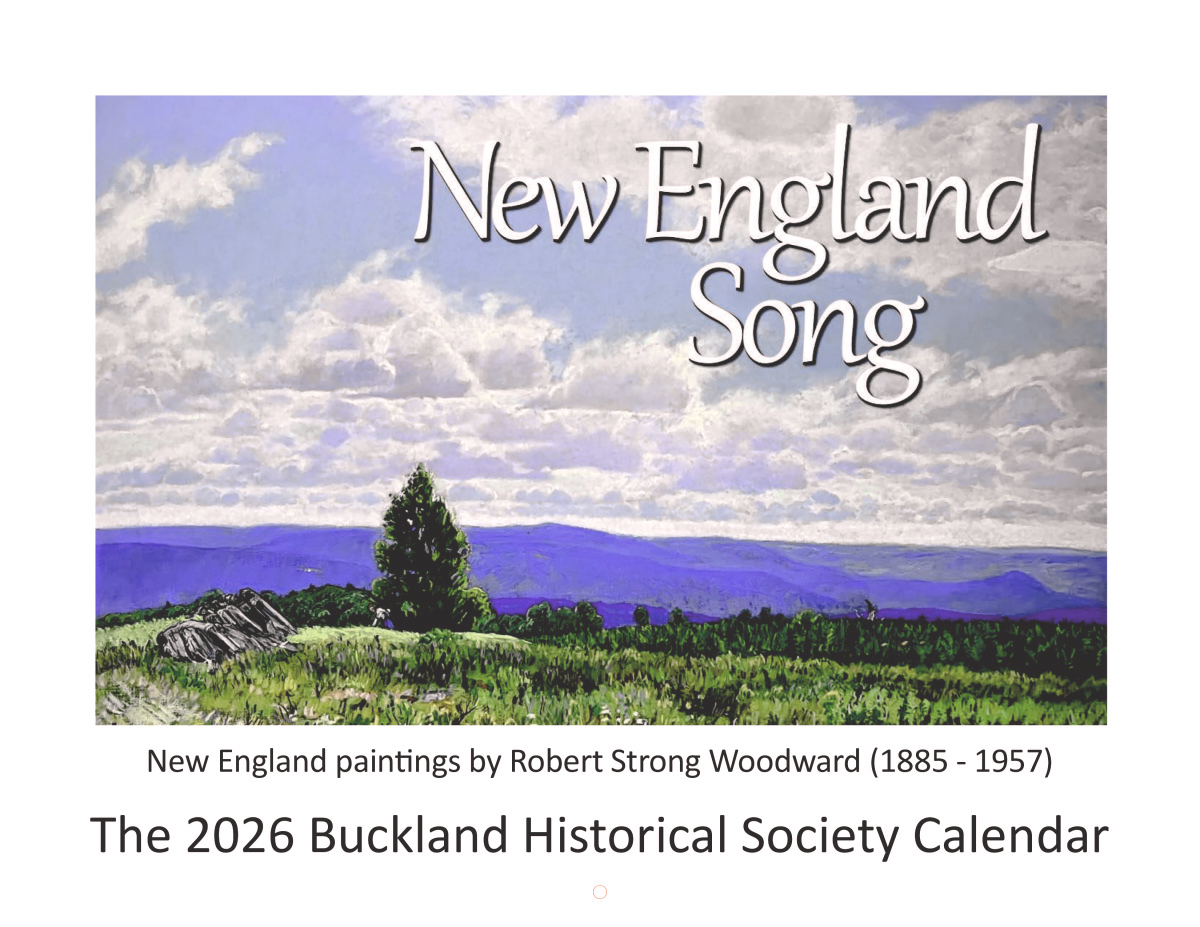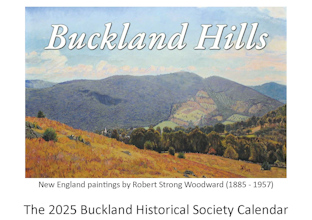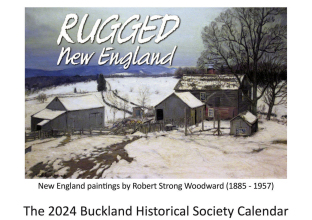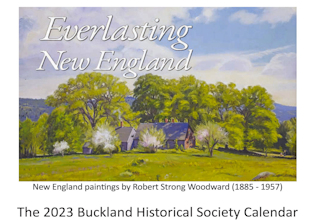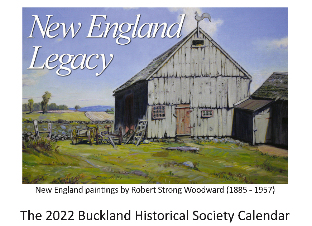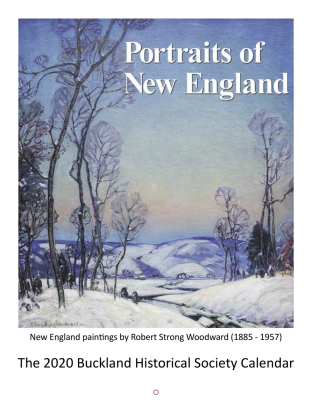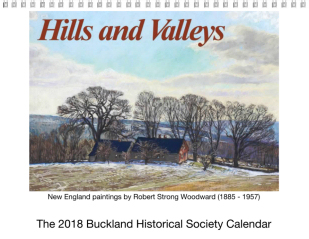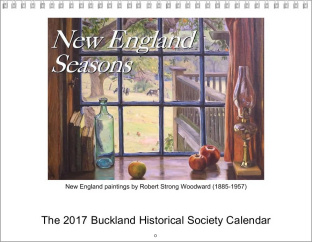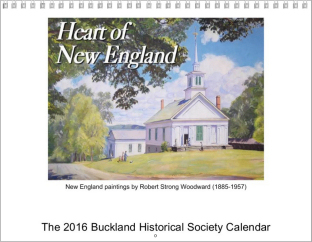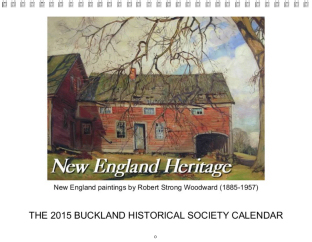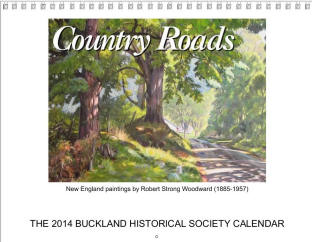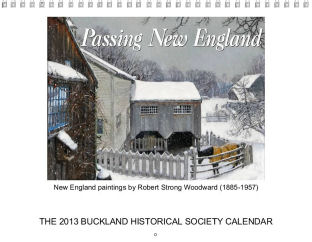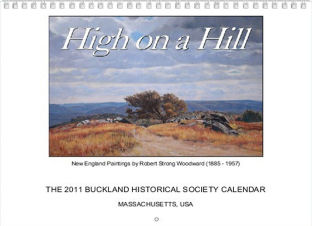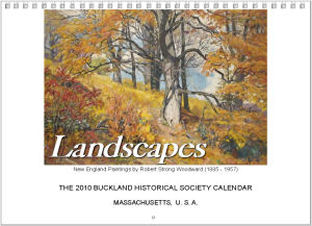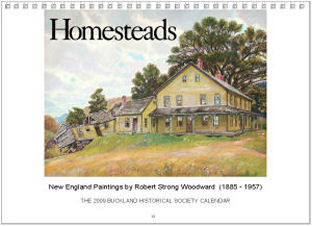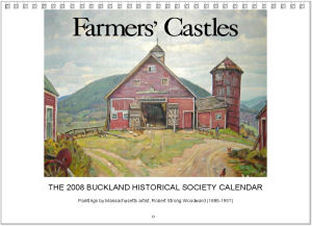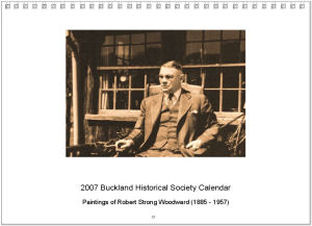Robert Strong Woodward
Calendars (in decending order)
New England Song (2026)
Inspired by artist James McNeill Whistler and the aesthetic movement (art for its own sake) originated by Oscar Wilde. Robert Strong Woodward's works of art speak the language of music— not only through brushstroke but in name. "Cello Song" (1914), a delicate fusion of drawing and verse, offers his clearest homage to sound, while paintings like "Snow Symphony" and "October Symphony" transform seasonal landscapes into visual compositions, resonating like orchestrated pieces and hints at the harmony he sought between nature and emotion.
Beyond these explicitly musical titles, many of Woodward's paintings carry the cadence of feeling. Works seen in this calendar like "Tapestry of Spring" and "Grey Heights" unfold like movements in a pastoral suite-each hue and contour revealing a lyrical phrase. "The Proud Elm", "Under the November Sky", and "From the Pasture Top in June" strike solemn, stately chords, while "Winter River" and "Winter Pastures" evoke quieter, introspective notes. In "March Light", one can almost hear the melody of chamber music in the studio; in "Early Sugaring", the still hush of snow. "Full Bloom" and "Gay October" burst forth in bold color, while "Beside the Road in Dover" lingers like a fading refrain.
Woodward's poetic approach makes his paintings resonate like musical compositions through rhythm, harmony of color, and emotional cadence. His deeper appreciation of sound is translated into visual form. Through light and shadow, texture and tone, he composed not just scenes, but symphonies of the New England spirit-each canvas a silent song of place, memory, and mood. The musical presence in his paintings, the lyricism in his brushwork, and the poetry in his words reveal a subtle yet profound kinship with music that remained throughout his life.

